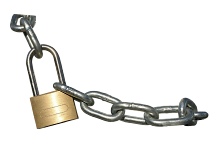Low cost IT training in St Albans & Harpenden areas

Book today: 01727 617359 or email courses@cfsta.org
© Copyright 2021 Computer Friendly
Registered in England number 04398683 Registered Charity number 1096433


Computer Friendly

Staying Safe
Stay Safe Online
Fraudsters have been conning people out of their money and possessions for centuries, but these days technological advances have given them even more ways to deceive and cheat you, and relieve you of your money. By using the phone or Internet they can do so without your knowing anything about who they are, or their whereabouts – most likely they are not even in the UK.
The “bad guys” have three ways they can exploit:
- Infect or take control of your computer, tablet or smart phone to steal your money,
- Use your device to attack someone else.
- Deceive you into handing over information about your bank or credit card details.
Protect yourself!
So your defences are:
- Protect your device to prevent someone installing malicious software, so called malware, ie viruses, trojans etc
- Protect yourself. Be very suspicious. “Don’t trust anybody!”
Do not give your bank account or credit card details to anybody who does not have the right to have them!
You wouldn’t give them to someone who came to your door, so why give them over the phone, or on the Internet?
Remember:
No bank or credit card company will call you and ask you for your account details.
The Police will not call you to say your account has been compromised and ask you for your account details.
Microsoft, Apple, nor any other reputable company, will phone you to say you have a problem on your computer that they can fix for you. BT will not phone you to say your account is frozen till you pay a bill.
Protect your Computer, Tablet or Smart phone
- Install Anti Virus software.
- Use a strong firewall, don’t rely on Microsoft.
- Keep all your software up-
to- date - updates remove loopholes the cyber criminal can use. - Do not use an unsecured WiFi hotspot for any financial transactions.
- Use strong passwords. Use a different one for every online service involving finance!
- Don’t open emails from people you don’t know, and don’t click on any attachment or link you do not trust.
Help and advice you can trust
Hertfordshire Constabulary use Online Watch Link, OWL, www.owl.co.uk, the online Neighbourhood Watch, to keep communities safe, help reduce crime and keep people informed of what's going on locally. OWL sends you the latest local crime reports, scam warnings and advice. Sign up at www.owl.co.uk.
Get Safe Online, www.getsafeonline.org, is the UK’s leading source of unbiased, easy to understand information on online safety. The website gives practical advice on protecting yourself, your computers and mobile devices, and your business, against fraud, identity theft, viruses and many other online problems.
Be Cyber Streetwise, www.cyberstreetwise.com, is a cross-
Use strong passwords Download software updates
Computer Friendly runs an Online Security course and we give security advice on our Starter courses. Please read our Telephone and Internet Scams leaflet.
Protect yourself from Scams
How do you recognise a scam? A scam is usually uninvited (unsolicited) from a company or person you’ve never heard of.
A scam will:
- Give extravagant promises -
if it sounds too good to be true, it almost certainly is!! - Put pressure on you to pay now, ask for your bank account details eg miss out on the prize or special deal.
Phishing – (pronounced 'fishing') is the most widespread email scam. It uses an email that looks as if it comes from a bank or credit card company, asking you to submit details of your account.
Report the phishing attempt to your bank or credit card company.